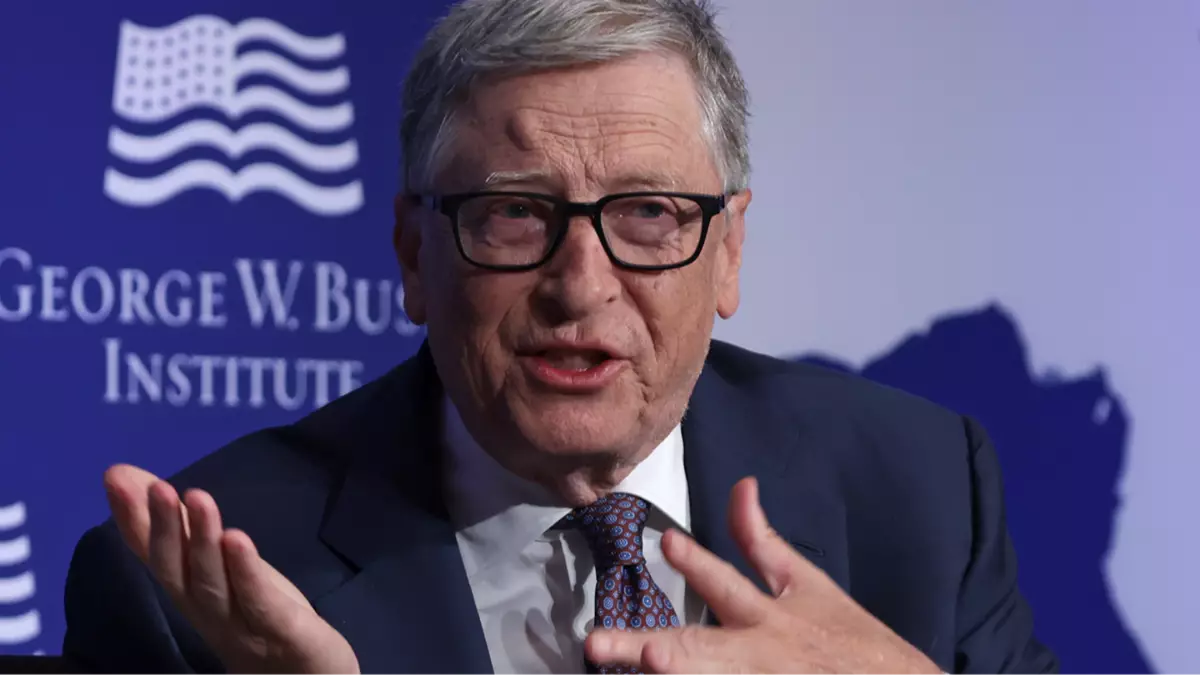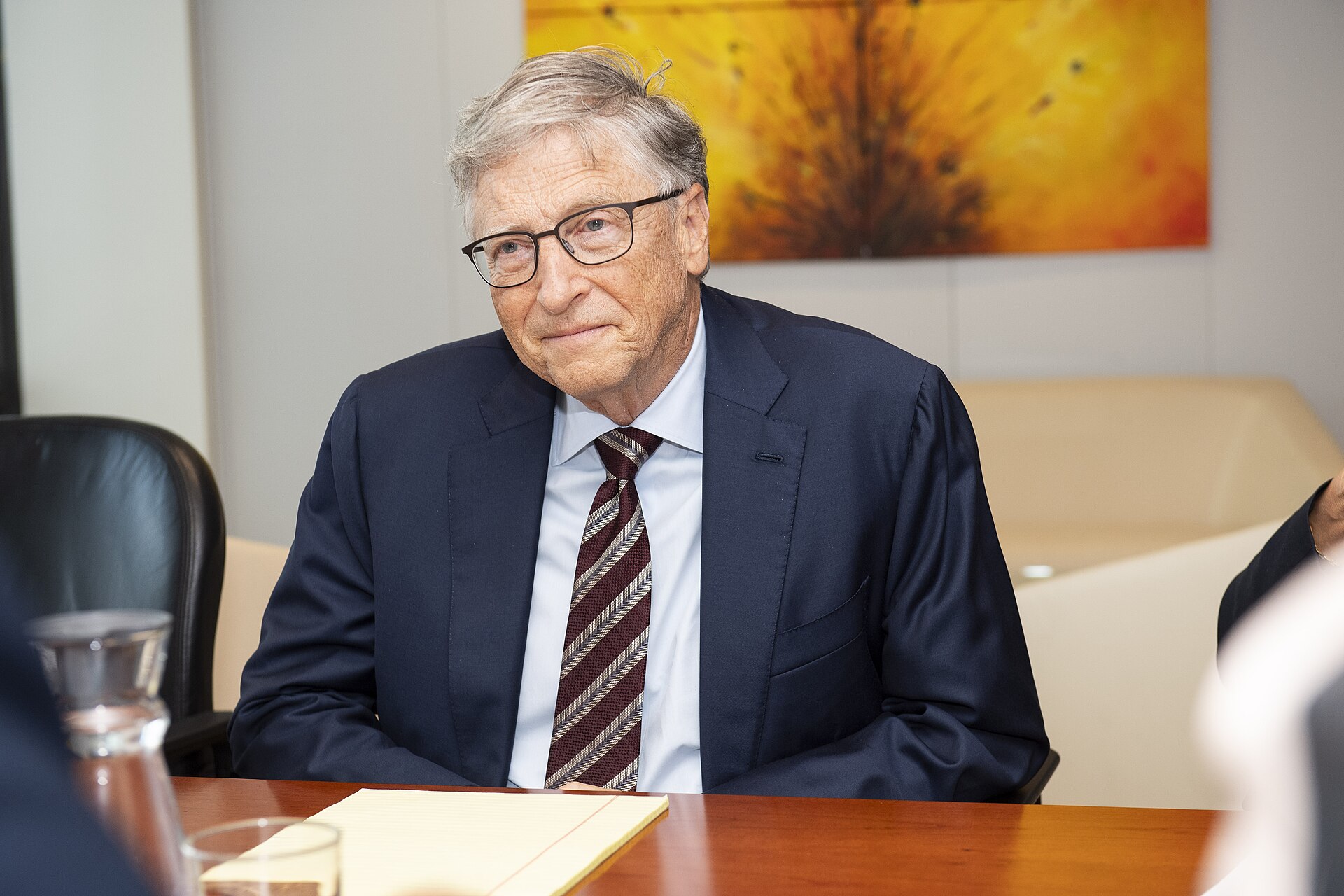.jpg)
Last week, the Gates Foundation announced it will spend more than $200 billion over the next 20 years — including nearly all the personal wealth of chair Bill Gates — and plans to sunset operations in 2045. This unprecedented commitment reflects an ambitious vision: to ensure that no mother, newborn, or child dies from a preventable cause.
Far beyond a traditional philanthropic gesture, this plan aims to fundamentally reshape global health outcomes on a massive scale.
Key voices from very different parts of the world highlight an often overlooked but powerful tool that could be pivotal in achieving this vision: direct, unconditional cash transfers to mothers. Mona Hanna, a pediatrician and associate dean of public health at Michigan State University College of Human Medicine in Flint, Michigan, leads the first community-wide program in the United States that “prescribes” cash to expectant mothers and newborns.
Miriam Laker-Oketta, a Ugandan medical doctor and senior research adviser to GiveDirectly, is deeply involved in researching how large cash transfers to the world’s poorest mothers improve health outcomes in Africa.
Together, these perspectives show that simply giving mothers cash — not advice, not training, but money with no strings attached — can be a game-changing approach to tackling maternal and child mortality globally.

The root cause of so many preventable deaths is poverty. Medical advice and interventions can only go so far if families lack basic resources. What good is an iron supplement if a mother cannot afford food to accompany it?
Why fund prenatal clinics if women lack money for transportation? How can breastfeeding advice help if mothers must return to hard labor just days after childbirth? In places as diverse as Flint, Michigan, and parts of East Africa, poverty is a health crisis — and cash is the missing medicine.
In Michigan, Dr. Hanna’s Rx Kids program provides $1,500 during mid-pregnancy and $500 monthly for six to twelve months postpartum to every expectant mother, regardless of income. Funded by a mix of public and private sources, the program has demonstrated encouraging early results. Families report fewer missed meals, more stable housing, and reduced symptoms of postpartum depression.
Prenatal care visits have increased, healthier births have become more common, and fewer infants require intensive neonatal care or child welfare intervention.
The evidence from East Africa, supported by GiveDirectly’s research, is even more striking. In Kenya, a single $1,000 cash transfer to poor households cut mortality among children under five by half. In Rwanda, a similar program reduced child mortality by 70 percent and nearly doubled vaccination rates — outcomes that outperformed traditional nutrition and sanitation interventions in the same areas.

These cash transfers empower mothers to afford clinic visits, nutritious food, safe deliveries, or simply rest during late pregnancy instead of risking health through strenuous labor. The result: more children survive their most vulnerable early years.
Decades of scientific research reinforce the positive impact of direct cash transfers on health. Improved birth weights, better nutrition, higher vaccination coverage, and lower maternal stress are just some of the measurable benefits. Compared to other widely scaled aid programs centered on advice or training, unconditional cash transfers have proven to be more cost-effective and scalable.
Rather than replacing clinics, vaccines, or health education, cash transfers multiply their effectiveness by addressing economic deprivation head-on.
Technological advances now make it possible to deliver cash remotely at critical moments to expectant mothers anywhere — from isolated villages in Mozambique to rural towns in Michigan’s Upper Peninsula. This innovation ensures that aid reaches those who need it most in a timely and efficient manner.
Despite these positive outcomes, some remain skeptical. Critics worry that recipients might squander the money, but data consistently contradict these concerns. Families use the funds responsibly on essentials such as food, shelter, baby supplies, and healthcare. In Michigan, typical purchases include diapers, cribs, rent, and utilities. In East Africa, mothers invest in food, school fees, and farmland.

These expenses are not indulgences; they are lifelines essential for survival and wellbeing.
Others question the sustainability of cash transfer programs. Yet, evidence shows lasting benefits — improved health and reduced poverty endure even a decade after receiving support. Cash transfers also stimulate local economies and align with global goals like disease prevention and improved vaccination coverage.
So why hasn’t direct cash become a foundational element of maternal and child health policy? One barrier is that many aid agencies design complex, top-down programs driven by their own priorities rather than those of the families they serve. To save babies with dignity, trust in mothers’ ability to manage cash is crucial.
Political resistance also plays a role. Cash transfers are sometimes dismissed as handouts. However, cash support for new mothers is increasingly winning bipartisan backing, including from pro-life Republicans who view it as an effective strategy to support mothers, reduce infant mortality, and revitalize local economies.
It is important to emphasize that cash alone will not fix broken health systems. But without addressing the economic hardships at the heart of poor outcomes, other investments are less effective. Providing cash to mothers is not doing less — it acts as a catalyst, increasing the likelihood that all other health interventions succeed.

If even a portion of Bill Gates’s historic $200 billion pledge is directed toward direct cash transfers for mothers, the future of maternal and child health could be fundamentally transformed worldwide. This approach empowers families, enhances the impact of medical care, and saves lives by tackling the root causes of mortality.
It offers a new model of philanthropy — one that respects mothers’ dignity, confronts poverty head-on, and leverages technology to reach the most vulnerable at critical moments.
In conclusion, Bill Gates’s commitment to giving away 99% of his wealth represents a bold vision to eliminate preventable deaths among mothers and children. Evidence from Flint, Michigan, and East Africa demonstrates that unconditional cash transfers are a practical, scalable, and cost-effective means to this end.
Embracing this strategy globally could rewrite the future of maternal and child health, ensuring healthier generations and stronger communities for years to come.
-1747623652-q80.webp)
-1747904625-q80.webp)
-1747734794-q80.webp)
